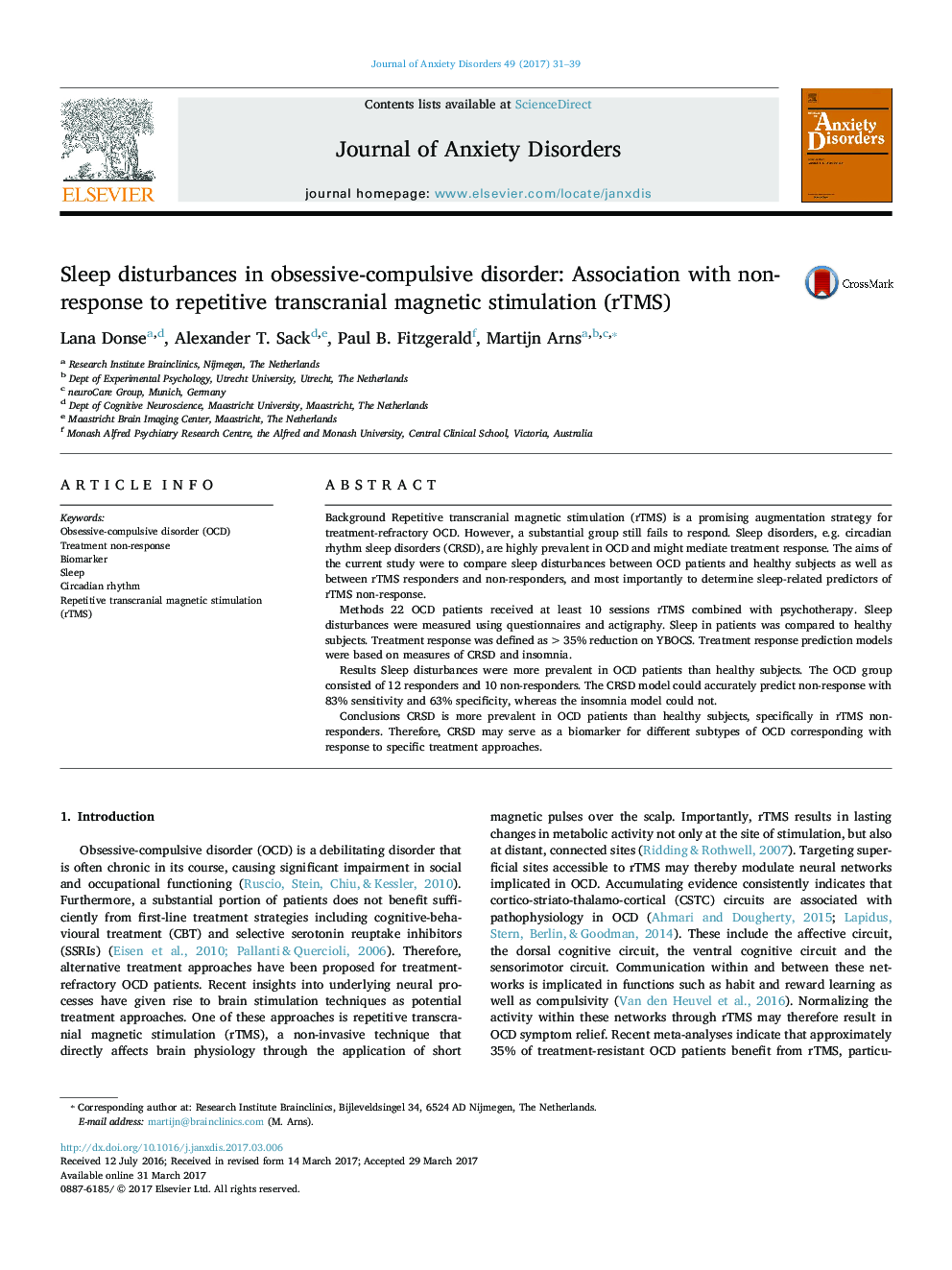| کد مقاله | کد نشریه | سال انتشار | مقاله انگلیسی | نسخه تمام متن |
|---|---|---|---|---|
| 5038905 | 1473029 | 2017 | 9 صفحه PDF | دانلود رایگان |

- It is proposed that sleep disturbances can predict rTMS non-response in OCD.
- Non-responders to rTMS exhibit a higher level of sleep disturbances.
- Circadian rhythm disorder can accurately discriminate rTMS responders and non-responders.
Background Repetitive transcranial magnetic stimulation (rTMS) is a promising augmentation strategy for treatment-refractory OCD. However, a substantial group still fails to respond. Sleep disorders, e.g. circadian rhythm sleep disorders (CRSD), are highly prevalent in OCD and might mediate treatment response. The aims of the current study were to compare sleep disturbances between OCD patients and healthy subjects as well as between rTMS responders and non-responders, and most importantly to determine sleep-related predictors of rTMS non-response.Methods 22 OCD patients received at least 10 sessions rTMS combined with psychotherapy. Sleep disturbances were measured using questionnaires and actigraphy. Sleep in patients was compared to healthy subjects. Treatment response was defined as >35% reduction on YBOCS. Treatment response prediction models were based on measures of CRSD and insomnia.Results Sleep disturbances were more prevalent in OCD patients than healthy subjects. The OCD group consisted of 12 responders and 10 non-responders. The CRSD model could accurately predict non-response with 83% sensitivity and 63% specificity, whereas the insomnia model could not.Conclusions CRSD is more prevalent in OCD patients than healthy subjects, specifically in rTMS non-responders. Therefore, CRSD may serve as a biomarker for different subtypes of OCD corresponding with response to specific treatment approaches.
Journal: Journal of Anxiety Disorders - Volume 49, June 2017, Pages 31-39